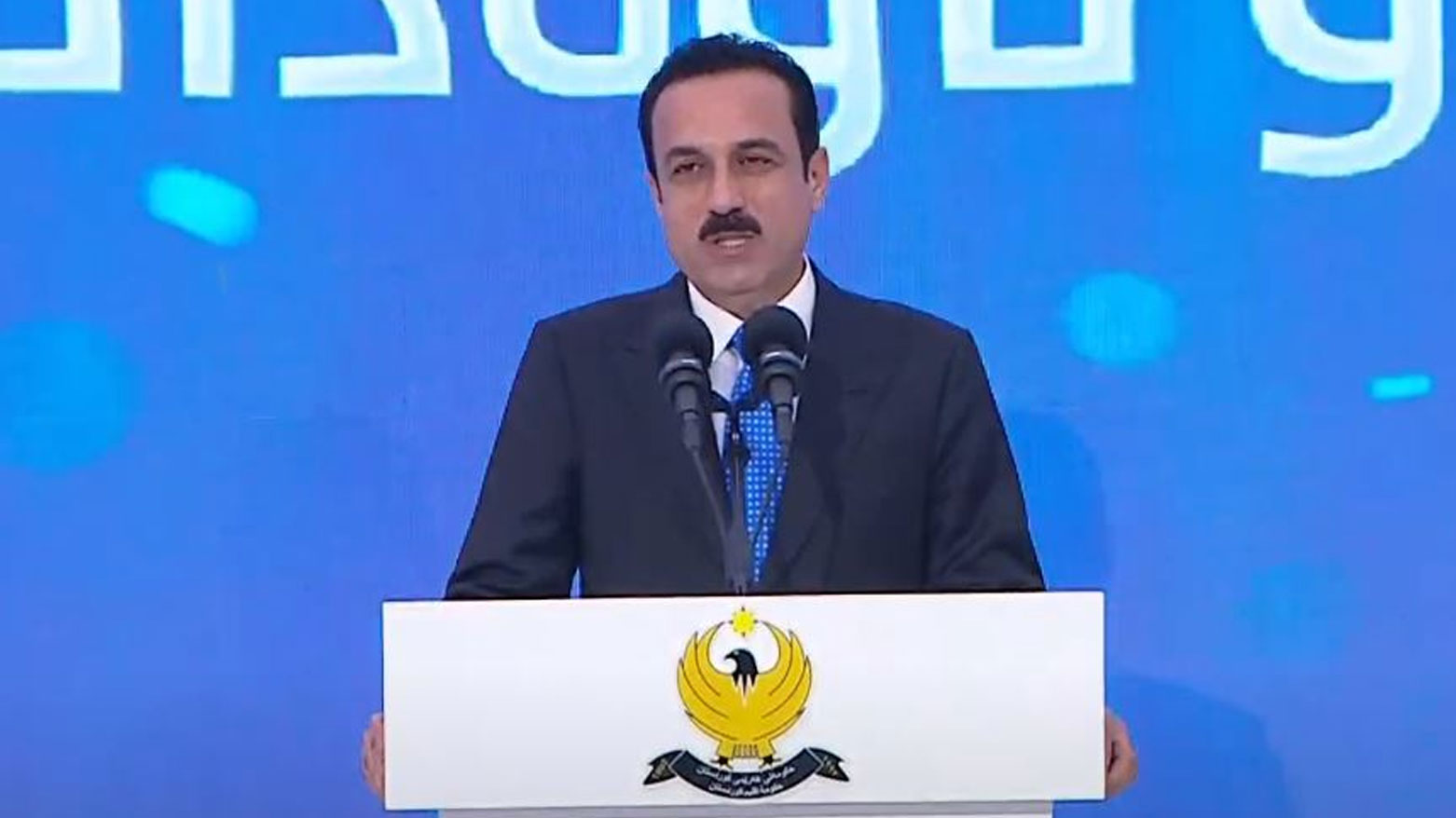Governor Hails 'Historic Day' as Erbil Launches Water Lifeline
Erbil Governor Omed Khoshnaw called the launch of a new water project a "historic day," ending a long crisis. Backed by PM Barzani, the $480M project, implemented by Hemen Group, will secure water for 30 years, with phase one now live for dozens of neighborhoods.

By Kamaran Aziz
ERBIL (Kurdistan 24) – Erbil Governor Omed Khoshnaw declared Sunday a landmark moment in the capital's history, describing the inauguration of a massive new water supply project as the definitive answer to a long and punishing cycle of floods and scarcity that has plagued the province for years. Speaking at a ceremony attended by Kurdistan Regional Government (KRG) Prime Minister Masrour Barzani, the governor celebrated the launch of the project’s first phase, which promises to end the city’s water crisis for the next three decades.
"Today is one of the most historic days for Erbil," Governor Khoshnaw announced at the inauguration of the Erbil Emergency Rapid Water Supply Project, which will now begin delivering a continuous supply of clean water to dozens of neighborhoods.
The governor provided stark context for the project's significance, recounting the severe challenges the administration has faced. "The water problem has a long history," he said. "Five years ago, despite a series of obstacles and crises facing the development of the Kurdistan Region and its government, for us in Erbil province, the year was divided into two seasons: one season was six months of confronting the preparations for and consequences of climate change and flood events, which unfortunately claimed victims in the winter of 2021. The other six months were spent confronting and preparing for the water scarcity crisis, where water was secured with great difficulty."
To underscore the scale of the struggle, Khoshnaw detailed the extensive and costly measures undertaken just to keep pace with the recurring crises. He noted that from 2021 to 2025 alone, the province spent over 100 billion dinars on drilling alternative water wells in various neighborhoods and another 130 billion dinars on constructing Erbil's natural drainage system to mitigate flooding.
In addition to these emergency measures, he highlighted the government's strategic efforts in water management, including the construction of four large dams within the province—Chamerga, Gomaspan, Bastora, and Aquban—along with several ponds, which have had a positive impact on groundwater levels and reduced flood risks.
Governor Khoshnaw credited the successful implementation of the new, comprehensive solution to the direct involvement and unwavering commitment of the KRG's leadership.
"Prime Minister Masrour Barzani has consistently been attentive to the citizens' problems," Khoshnaw stated. "He has always instructed us to solve these issues, provided full financial support, and approved the necessary budgets for projects. The Prime Minister has also always emphasized that Erbil's water scarcity problem must be solved at its root. When the idea for the Erbil Emergency Rapid Water Project arose, he gave his full support, and the project has now been implemented by Hemen Group."
The project itself is a feat of engineering and strategic planning. The foundation stone was laid by Prime Minister Barzani on September 8, 2024, initiating a rapid implementation schedule of less than 550 days with a budget of nearly 480 million dollars. Once fully complete, the system will treat 480,000 cubic meters of water per day and distribute between 20,000 and 21,000 cubic meters of clean, potable water per hour to Erbil’s neighborhoods on a 24-hour basis.
The system sources its water from the Great Zab River, subjecting it to purification, filtration, and chlorination processes that adhere to both World Health Organization (WHO) and Iraqi standards. The water is then distributed through four main pipelines situated between the 120-meter and 150-meter ring roads.
With this first phase now operational, a long list of neighborhoods that have historically suffered from severe water shortages will receive a continuous supply. These include: Rashkin, 32 Park, Turaq, Alan City, Diyari City, Baghlumnara, Mamzawa, Qatawi, Zhyan, Roshnbiri, Fermanberan, Zaytun City, Daratu, Bnaslawa, Hiran City, Altun City, Galawezh, Awenay Shar, Berkoty Nwe, Ta'jily Nwe, sectors 8 and 5 of Hasarok, Hawkarī, Kasnazan, Zilan, Lawan, Ainday Du, Andazyaran, Ashti, and Qalaty Nwe.
